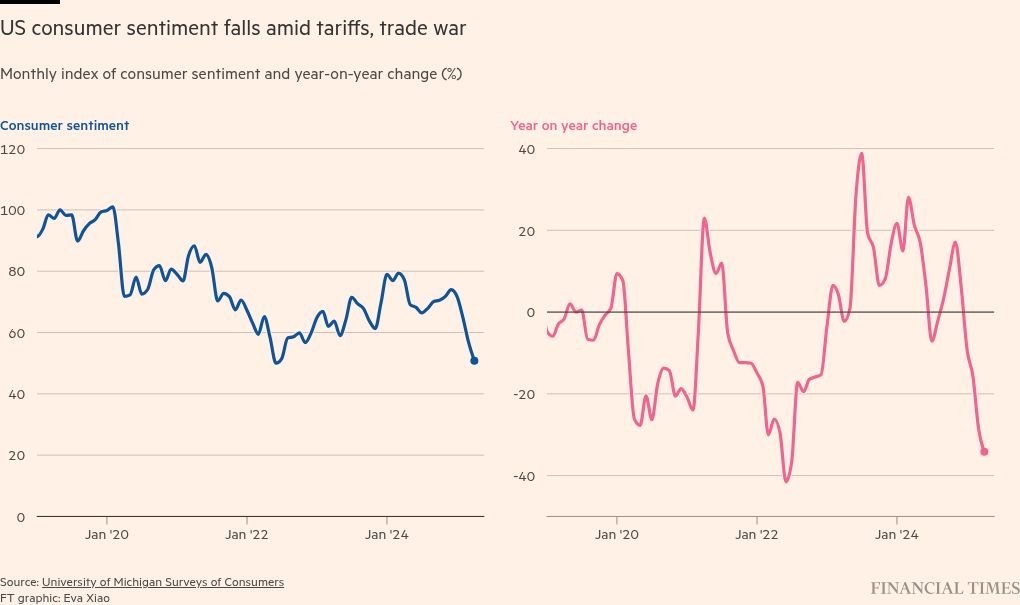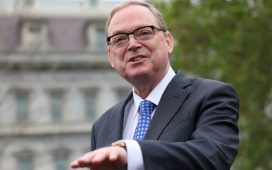Unlock the White House Watch newsletter for free
Your guide to what the 2024 US election means for Washington and the world
Donald Trump’s tariffs will send US inflation soaring to as high as 4 per cent this year, push unemployment higher and hit economic growth amid “pervasive” uncertainty, a top Federal Reserve official has warned.
New York Fed chief John Williams said in prepared remarks on Friday that a “pervasive sense of uncertainty is becoming increasingly evident, especially in so-called soft data such as surveys and information from business contacts”.
He added that there had been “a sharp decline in consumer sentiment, and business sentiment measures have weakened, too”.
Williams said that he expected inflation to reach 3.5 to 4 per cent this year as a result of Trump’s tariffs, much higher than the Fed’s 2 per cent mandate and far above the 2.5 per cent February reading for the central banks’ preferred PCE inflation measure.
He also said that he expects growth to “slow considerably from last year’s pace, likely to somewhat below 1 per cent” while unemployment could rise from 4.2 per cent currently to 4.5 to 5 per cent.
The gloomy assessment from one of the Fed’s most prominent officials comes as US financial markets have been rocked over the past week by Trump’s announcement of ultra-protectionist trade policies that he only partially rolled back.
Last week, Jay Powell, the Fed chair, had warned that the tariffs proposed by the administration had been larger than expected and the result would likely be higher inflation and slower growth. But Williams’ comments are more dire and more specific, and are far gloomier than the projections posted by Fed officials during their March meeting, which had inflation rising by 2.7 per cent and GDP expanding at a rate of 1.7 per cent.
Despite the gloomy outlook, Williams said “the current modestly restrictive stance of monetary policy is entirely appropriate given the solid labour market and inflation still above our 2 per cent goal”.
The comments from Williams came as data showed US consumers’ inflation expectations surging to their highest reading since 1981 in April, as sentiment fell sharply for a fourth consecutive month.
The University of Michigan’s consumer sentiment index fell to a preliminary reading of 50.8 in April, its four successive drop and the lowest reading since June 2022 according to LSEG. Economists polled by Reuters had estimated a fall to 54.5 from 57 in March.








